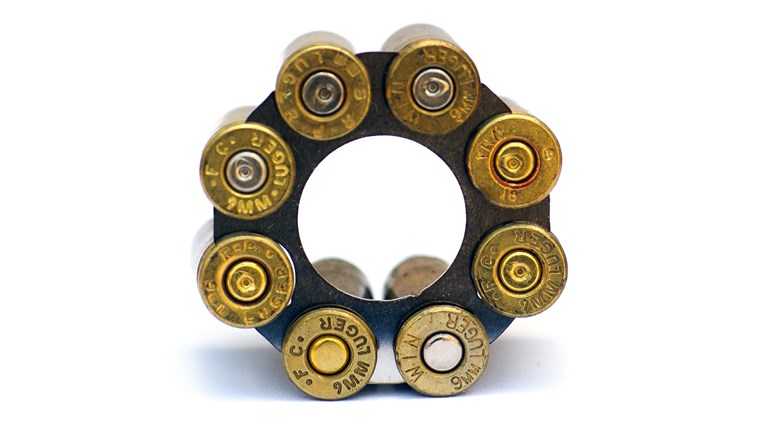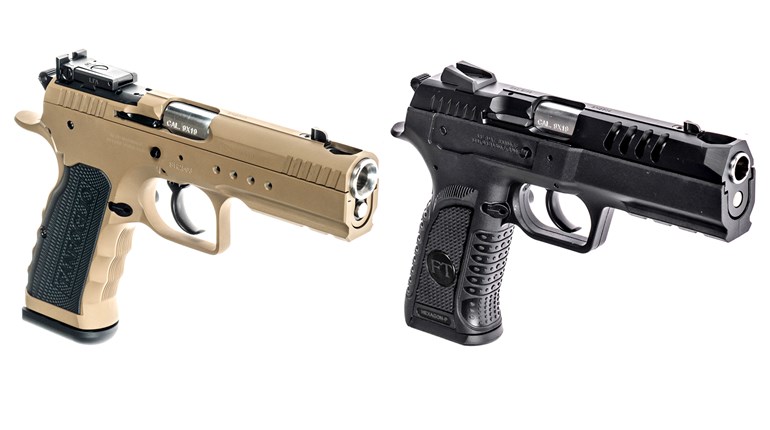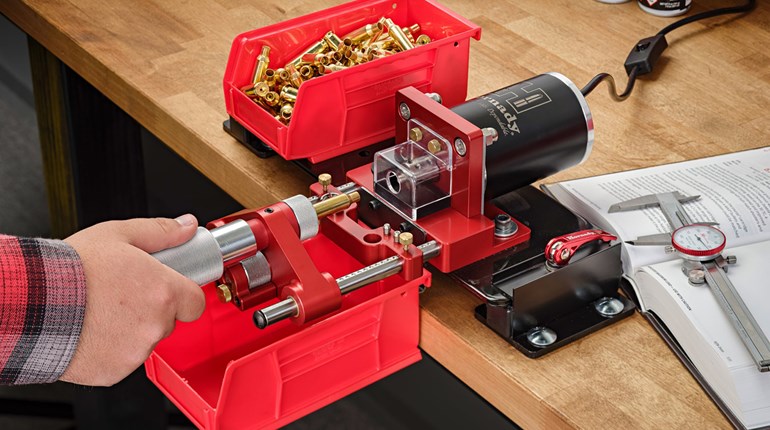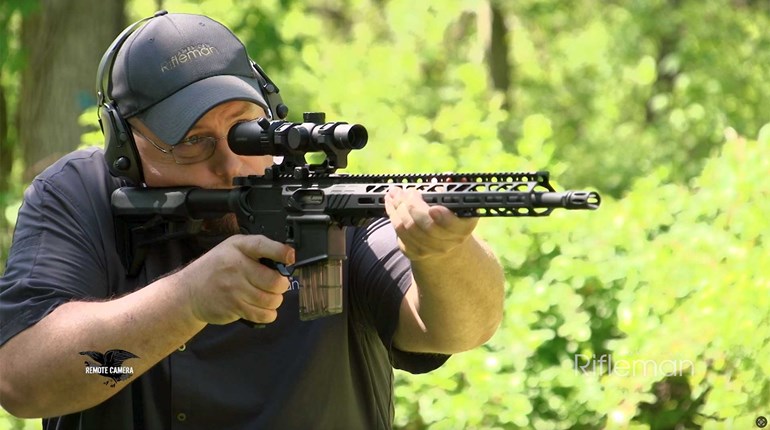
Typically, when you arrive at the range with a set of handloads that you've carefully researched, you'll see reasonable accuracy that will get increasingly better until it hits a point at which groups start to enlarge. At that point, you've found your node. However, if this were the case every single time, then handloading would be boring. Handloading for the 224 Valkyrie is anything but boring. Part of the joy of reloading is plunging into the unknown, and for this reason, I continue on with my Federal Premium 224 Valkyrie project that is becoming nothing less than a saga. (You can read the first part of the 224 Valkyrie handloading story here.)
After the launch of the 224 Valkyrie, a 1:6.5-inch twist rate barrel was introduced into the market in efforts to better stabilize longer (heavier) bullets and increase accuracy. Rumors circulated that this twist rate was required to stabilize the 90-grain Sierra MatchKing bullet. After manufacturers geared up to create these barrels, there was some trouble with the current 90-grain offerings on the market, and a recall was issued. Later, Sierra Bullets issued a statement informing handloaders that this round will stabilize just fine in a 1:7-inch barrel, just as long as they are driven fast enough.

I became privy to this information as I stared down at a brand-new, 22-inch, medium-contour 224 Valkyrie barrel from Tactical Kinetics, bored with a 1:6.5-inch rate of twist that just arrived from UPS. Nothing in my life is ever wasted, and anytime we can go further and push harder, we do. The faster barrel can undoubtedly stabilize even-heavier bullets than the 90-grain MatchKing, so without skipping a beat, we reached out to Sierra to get some of the company's new, heavy-for-caliber 95-grain MatchKing bullets for load development.
Rebarreling an AR-15 is really no work at all. Sitting on my bench was the new Real Avid Master AR-15 Armorer's kit. In just about 15 minutes, we had the new barrel on and headspaced it with the included torque wrench. Other than the barrel, the rifle was completely unchanged from our previous two rounds of testing.
We tumbled our 224 Valkyrie brass in a Lyman Products Turbo Twin Tumbler until it looked like jewelry. We then resized it using the same set of RCBS dies from our original handloading piece. After cleaning and re-uniforming the primer pockets, we were ready for fresh primers and powder. Using the same CCI benchrest primers and Hodgdon Varget powder, we loaded up the new Sierra offering. This prepped us for some fast range work, as there were only four safe increments of powder to work with. While I was at it, I decided to retest the 88-grain ELD match bullets from Hornady with the same powder charges that we ran through our 1:7-inch ER Shaw barrel. This would give us an accurate head-to-head comparison, as after this experiment, we will have tested each safe load in each barrel.

Range day was comfortable (for once) and gave us a warm, 65-degree day with no wind at all. This gave us great conditions for a head-to-head test of the 88-grain Hornady ELD Match and the 95-grain Sierra MatchKing. This test will also show us exactly how much impact we get out of that faster twist rate. Setting up on a Caldwell Stable Table Lite, we built ourselves a steady firing position. After a few fouling shots and some time to clean and zero, we started conducting our group testing.
Both rounds shot well, with the best group belonging to the Sierra MatchKing with 21.8 grains of Hodgdon Varget. Reaching down for the fifth round, I noticed that there was a sliver of copper hanging off of the mouth of the case. It appears that the sizing dies squeezed the neck down just a hair too tight, and this particular bullet got shaved off a bit. Nonetheless, I decided to send it. To my dismay, it ruined the group completely. However, the four shots that I know didn't have any issues all landed sub-MOA, and that is good enough for me!

With the 88-grain ELD Match bullet, we saw some really good results, but again a fifth shot got some jacket scraped off and found its way out of the group. This was a bit disheartening, but we still reached some conclusions. The final measurement gave us a four-shot group that was very tight, so I believe it's safe to assume the fifth would be inside of that group in both scenarios. That final measurement of the four shots was just about 0.25-inch outside of MOA, which is not much of an improvement from when we shot the 18-inch 1:7-inch barrel from ER Shaw.
Going from a 1:7-inch to a 1:6.5-inch wasn't exactly a game changer with the 88-grain ELD and Varget powder. While rate of twist is certainly very important, it looks like different powders are going to have more of an accuracy impact for the 224 Valkyrie in particular. That being said, I might as well research which powders will get these bullets moving a little faster while I’m at it. So, stay tuned for a Part Three!

One thing's for sure though. The new Tactical Kinetics barrel is on par with ER Shaw which really says a lot about the high-quality barrels coming out of Tactical Kinetics. While they're a new player on the market, it appears that they have figured out how to produce an excellent product that can run with the big dogs. However, a few elements need to get tweaked before I take a trip to stretch this rifle's legs.
For starters, I think it's only prudent to experiment with different powders to see if we could safely get the velocity up higher to help stabilize the bullet, particularly at extended range.The fact that we aren't experiencing any tumbling shows that we are well on our way. I think just a little more velocity will get us where we need to be. We also need to do a little bit of work with the brass prep as well. We may need a set of bushing dies to reduce neck tension just a hair. Either that or some light chamfering of the case mouths to get bullets seated without damage.
Although load development with the 224 Valkyrie has been some of the most-finicky work I have ever done, I am not giving up on this round, especially since we are reaching minute-of-angle or better accuracy in most cases. I have never turned away from a challenge, and I certainly won't start now!




































